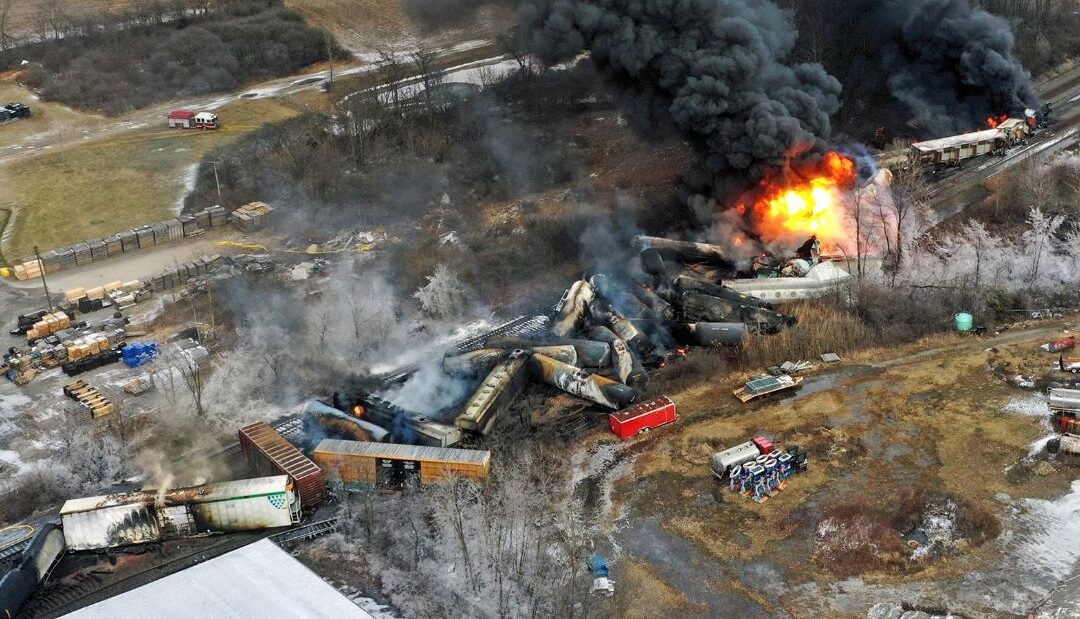By Don Mayer
It’s fairly commonplace for CEOs of U.S. companies to move quickly into crisis management mode after a public relations disaster. Alan Shaw, CEO of Norfolk Southern, was in just such a mode after the February 2023 train derailment in East Palestine, Ohio. Beyond visiting the community several times, he penned an Op-Ed in the Washington Post (March 8, 2023) with the comforting title, ““We’re committed to helping East Palestine recover.” After detailing many of the safety steps that the railway was committing to, he said:
“. . . .we are firmly committed to the residents of East Palestine and the surrounding communities in Ohio and Pennsylvania. I’ve been to the area five times since the accident. Many of the people I’ve met are angry, scared and concerned about the future. I understand their skepticism that a big corporation such as Norfolk Southern will do the right thing, and we are determined to earn their trust.”
And later:
“The steps we are taking are just a beginning. I’ve met with community leaders, business owners, school officials, clergy and residents to begin to identify ways we can invest in the future prosperity of East Palestine and support the long-term needs of its people. . . .We will see this through. We are going to make it right.”
Well, no, at least not right now. Shortly after this op-ed was published, it became known that Norfolk and Southern was not interested in paying community members for the loss of their property values as a result of the railway’s negligence.
As CNN Business reported, Sen. Ed Markey, a Massachusetts Democrat, asked Shaw four different times at a March 9 Congressional hearing to commit to compensating homeowners, only to hear Shaw repeatedly reply, “Senator, I’m committed to do what’s right.”
Markey said that wasn’t an acceptable answer. When Shaw was asked by Sen. Jeff Merkley, an Oregon Democrat, “Will you pledge to no more stock buybacks until a raft of safety measures have been completed to reduce the risk of derailments and crashes in the future,” Shaw again dodged the question by answering only with, “I will commit to continuing to invest in safety.”
According to CNN Business, paying the homeowners and businesses wouldn’t necessarily be difficult for Norfolk Southern. “With a population of about 5,000 people, there are roughly 2,600 residential properties in East Palestine, and the average value of a property there in January of this year, prior to the derailment, was $146,000. Taken together, the value of all residential real estate in the town adds up to about $380 million, including single family homes and multi-family properties.”
“Those values are only a fraction of the money that Norfolk Southern earns. Last year it reported a record operating income of $4.8 billion, and a net income of $3.3 billion, up about 9% from a year earlier. It had $456 million in cash on hand on its books as of December 31.”
“It’s been returning much of that profit to shareholders, repurchasing $3.1 billion in shares last year and spending $1.2 billion on dividends. And it announced a 9% increase in dividends just days before the accident.”
CEO Shaw’s op-ed assurances are part of the standard playbook for CEOs, and, of course, perfectly legal. “Determined to earn their trust?” If you want to regain and keep people’s trust, keep your promises. As my mother always said (and, most likely, your mother, too): “Actions speak louder than words.” A corporate CEO in disaster PR mode will always sound reassuring, but ultimately must look after the company’s “bottom line.” Paying out promptly to East Palestine property owners who have lost value because of the company’s negligence would be a promise kept (“We’ll make this right.”), and set a high standard for corporate responsibility. Norfolk and Southern could afford to do it. But I’m not holding my breath.
